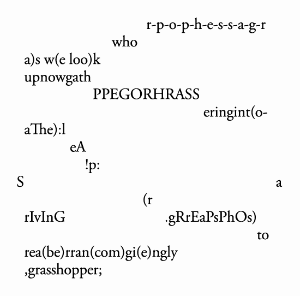Nabokov writes, “My very photogenic mother died in a freak accident (picnic, lightning) when I was three, and, save for a pocket of warmth in the darkest past, nothing of her subsists within the hollows and dells of memory, over which, if you can still stand my style (I am writing under observation), the sun of my infancy has set . . .”
The power of the parenthesis (Parenthetically Mine:
A (very) Short Story
You are my subject; I want to poach this moment (pen the inflections of your flesh—as they undulate on your face—within the slabs of punctured space) and dress myself in its impossible fur (the curve of a cheek dances with the visceral lip as it curls in heat). You say,
"Listen, just listen—",
and your waxen fingers come down like knives on crystal, piercing the hum of the night and it is you that chimes. My hand still resides, a paperweight smidged in dye, on the leaf, still green, lightly peppered in azure tint. This hand is a shade, carefully penning the fantastic blend of ghostly bends that becomes your face; tired and yellow, feeding off of a tense that never remains. Is it in vain? Is it vain?
Come, continue to play . . . let my hand indulge in the supple demands of your arms as they flex and beckon pale spiders like magnets to pounce on a canvas of sound; let me play, let me bounce. Is it fine that my mind reclines into the depths of your sound?
(your eye flutters its lid, plunging serene like a wave slapping a curtain of pain onto soft grains; lapping its honey glaze on the empty space, creating rhythm and rhyme and an endless design that persists in time). You say,
“Can I read what you write?”
My subject, my object—perpetual verb: give me sound; give me rhyme; let your fingers climb up the scale and down the vine. Am I stealing your pride? Let me drink with my mind! Ignore the blue streaks that transverse my specter fin; forget my hands—shift your gaze from my literal veins and continue to play, for you simply shan’t exist a self-referent midge. Don’t pry: you are my subject, my object; you'll wither the vine. You are mine.
(you begrudgingly shift)
I am dry.
The moment has passed.
The period last) exists in its ability to create parallels.
